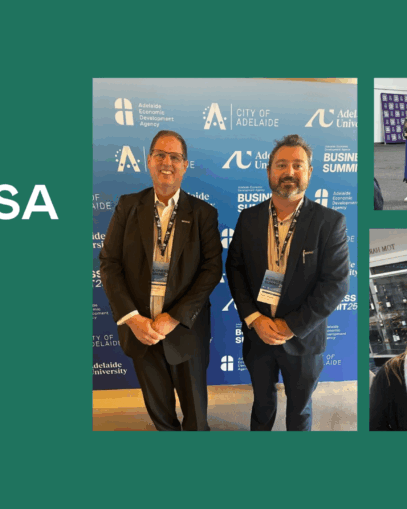To Recovery and Beyond – Leaning into risk

By Margaret Cresswell and Brendhan Egan, Principals at Parbery Consulting
A key lesson from the COVID19 crisis is that sometimes the risk of doing nothing is greater than risking big change. In many areas of activity, cautious and conservative norms have been turned on their heads as the significance of the emergency we were facing became apparent.
Do we need to get more comfortable with being uncomfortable?
Transformational thinkers will continue to emerge and innovate to create new and exciting sectors. There have always been individuals with an entrepreneurial mindset that embrace risk and innovation. Indeed, we have seen some of the greatest entrepreneurs and innovators in history over the past few decades, from Steve Jobs to Elon Musk. It is also often during times of crisis or great need that we see innovation emerge. However, large traditional organisations, and governments especially, struggle with genuine innovation and tend to embrace risk aversion, or at best cautious risk management.
The post COVID19 challenge may require us to embrace risk and try different ideas to a much greater extent if we are to meet the aspirations of generations that have grown used to growth and prosperity (albeit unevenly distributed).
One of the great new industries of the 20th century was cinema, which has survived to this day despite numerous challenges from television to the internet. This multi-trillion dollar industry is predicated on a business model that 8 out of 10 films will lose money, with the 9th film breaking even and the 10th one making enough to cover the costs of all 10 and deliver a profit. Venture capital firms operate on a somewhat similar model. There are many proposals and ideas already emerging as to what is needed to recover businesses, economies, and societies successfully from COVID19, but perhaps the biggest challenge will be adopting a mindset that accepts a safe–to–fail environment. This test and adjust mentality will be necessary to identifying the big successful initiatives that will take us forward.
So, what might be over the horizon for future generations?
Societal expectations have somewhat course-corrected and the emerging professionals of tomorrow will have vastly different expectations than those of a pre-COVID world. Engaging with risk and embracing new behaviours and ways of working will help businesses, organisations and governments prepare for the recovery phase we are now entering.
How significant an effect will this global crisis have on our young people? This is the generation who will be forever influenced by their experience of the pandemic, and whose response will largely define the future for several generations to come.
An important part of recovery is focusing on the positive changes that have come about through the impact of the pandemic. The spirit of community and openness which has largely charactarised the response in Australia, particularly between those who are normally seen as competitors or adversaries, and the universally greater understanding of the importance of the role of front-line workers such as health care professionals and teachers, is immeasurably positive.
As history shows, societies emerging from past mass crises are forever changed. The Black Death plague in Europe was followed by the Renaissance; the post–war period was characterised by an economic boom combined with a very socially conservative period, but also brought on global de-colonisation.
Those who are able to take chance and risk failure – the pioneers – will be the most successful.
Leaders who are prepared to take on innovative ventures with, in some cases, large elements of risk and be prepared to try and fail (even repeatedly) will be these pioneers. This will require a significant degree of acumen, conviction, and persistence from the risk takers, and a greater mindset of patience, tolerance and understanding from shareholders, financiers, and voters, even in the face of considerable anxiety and pressure.
Our future will be largely defined not simply by those who choose to take risks, but by those who have the ability and courage to realise when there really isn’t a choice but to risk something new and different in order to succeed.
Margaret Cresswell is an expert in strategic communication, change and human and organizational behaviour and has lectured at the University of Canberra across multiple communication disciplines. Margaret is a past serving member of the Royal Australian Navy and has consulted internationally.
Brendhan Egan is a former Senior Defence official and Trade Commissioner who has led trade and investment promotion activities including the areas of education, energy and environment, biotechnology, systems integration, and advanced manufacturing.


